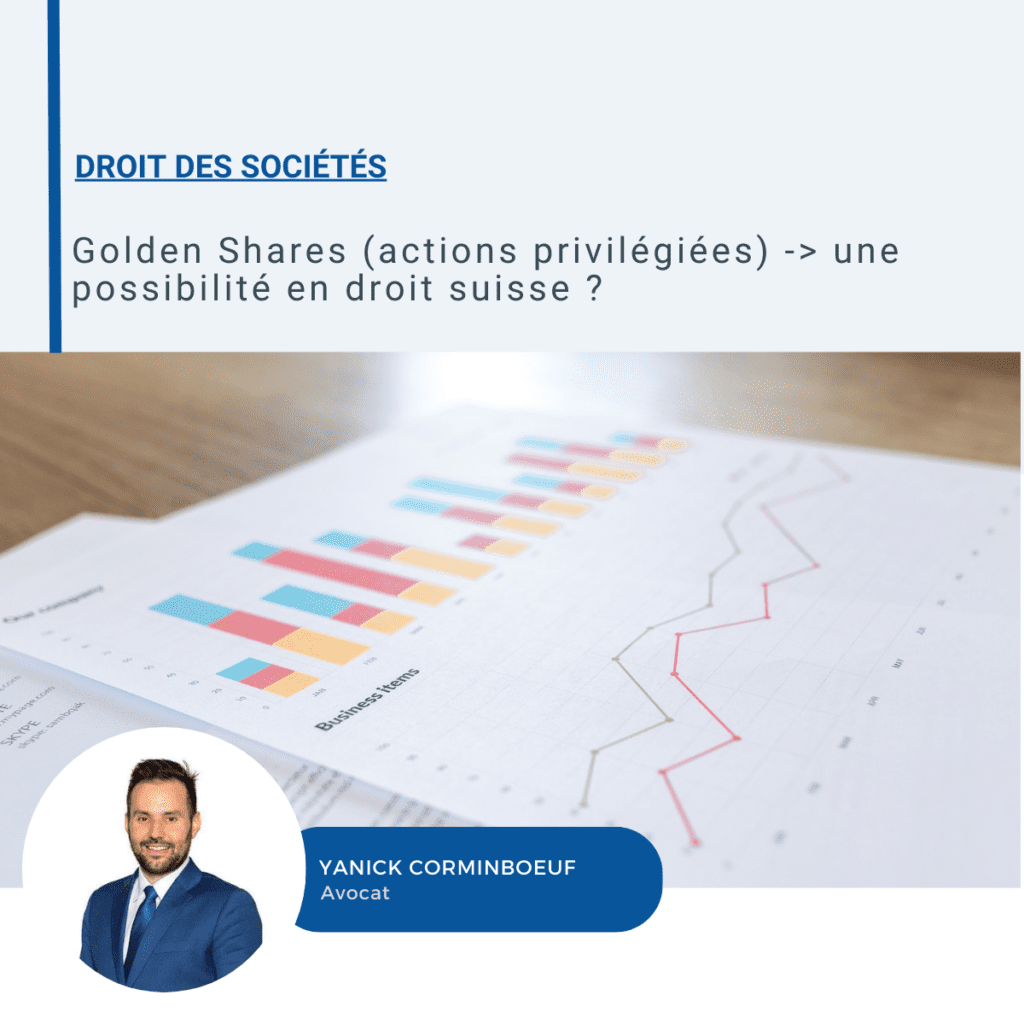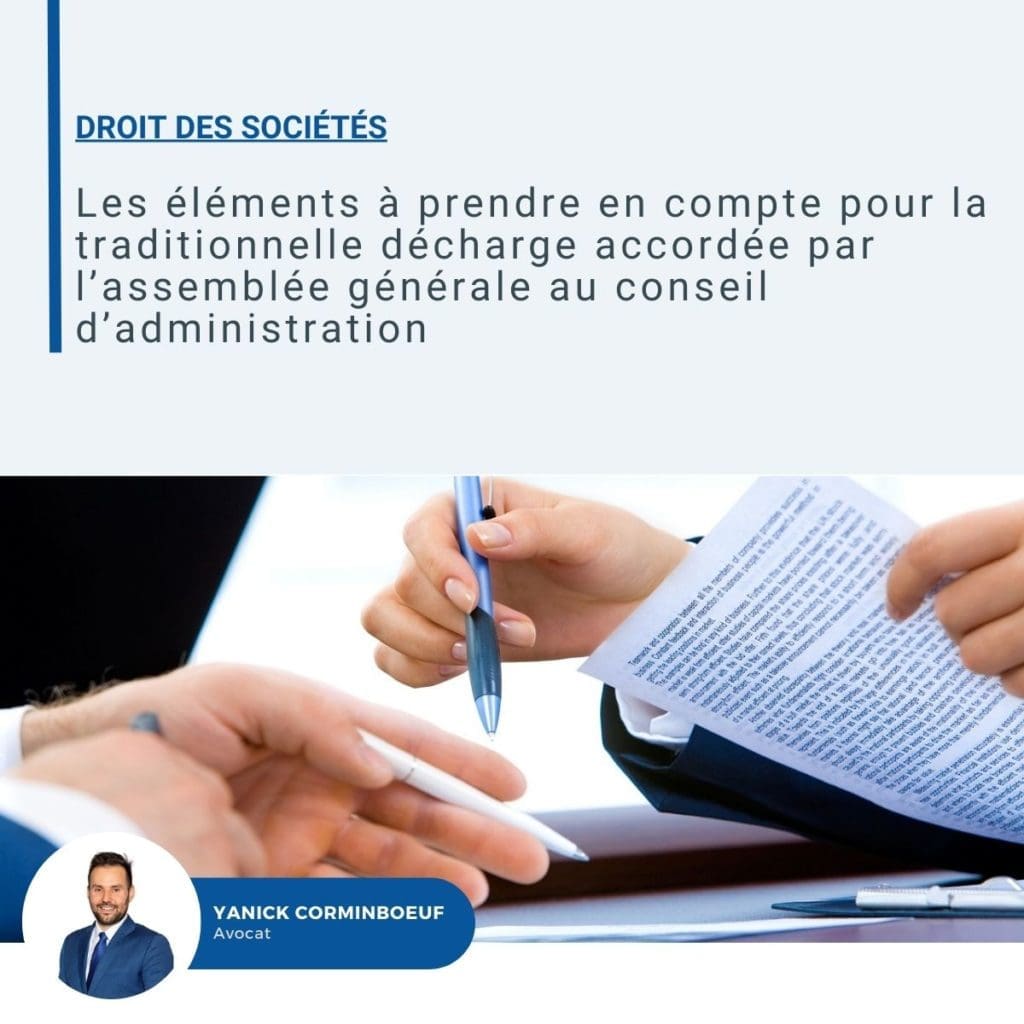Golden Shares -> a possibility under Swiss law?

1. Introduction Golden Shares were historically used by states in the 20th century to maintain control over formerly state-owned companies, in particular to prevent other states from acquiring control over these companies. Golden shares are still used in most Asian countries (notably China). This term has become generic to designate preferred shares in relation to others […]
Legal uncertainty surrounding Russian sanctions

The sanctions taken by Switzerland against Russia following the invasion of Ukraine are unprecedented in their nature and scope, and undermine certain basic principles of the rule of law. In this article, the authors are highlighting certain problems with regards to the Federal Council Ordinance enacting these sanctions that they have encountered in the course […]
Factors to be taken into account in the traditional discharge granted by the annual shareholders’ meeting to the Board of Directors

With the vast majority of Annual shareholders’ meetings being held in June in accordance with the requirements of art. 699 para. 2 of the Swiss Code of Obligations (CO), the question arises whether the traditional discharge should be granted to the members of the Board of Directors. In fact, according to art. 698 para. 2 […]
Departure of an employee who is a shareholder of the company: the good leaver/bad leaver clauses that must be provided for contractually
1. Introduction In practice, companies (start-ups, SMEs, large companies) frequently grant shares to certain employees as an incentive and with the purpose of giving them a direct share in the company’s results through the receipt of dividends. In this context, it is advisable to conclude a shareholder agreement with the employee to whom the company […]
BIM (Building Information Modeling) contracts: what to look out for?
BIM (Business Information Modeling) is a tool increasingly used by construction departments and public owners. In a few words, the BIM method is a digital method used during the planning and execution phases of a construction project, which allows the participants (such as architects, engineers, project owner, etc.) to use virtual building models to allow […]
Public procurement: can the bidder be compensated for the work done to prepare the bid?
Participating in a public procurement bid is a significant investment for any company. The time devoted to the drafting of a bid is important and often mobilizes several people full time for several days or weeks. Unless we win the contract, the work done is not paid. However, there is the possibility for bidders to […]
Publication from Philippe Gilliéron related to the issues raised by the use of artificial intelligence in criminal justice
We are pleased to inform you about the latest publication from Philippe Gilliéron related to the issues raised by the use of artificial intelligence in criminal justice (with a regrettable typo from the publishing house in the name). This publication is the written and extended conference delivered by Philippe during the yearly Congress of the […]
Christophe Wilhelm obtained the title of Certificate of Advanced Studies HES_SO in Mergers, Acquisitions and Transfers of Companies
Christophe Wilhelm successfully completed the HES-SO continuing education programme on 3 September 2021 and obtained the title of Certificate of Advanced Studies HES_SO in Mergers, Acquisitions and Transfers of Companies. This education program, over a period of time of 18 months, divided in 5 modules, plus a full study case with a written final report, […]
Best Lawyers Switzerland 2022 has been released!
It is our pleasure to have our partners Christophe Wilhelm and Philippe Gilliéron rank this year again in their respective fields of expertise, namely Corporate Law for Christophe and Intellectual Property for Philippe. As this ranking is solely based on peer reviews, we would like to deeply thank our colleagues for having praised our work. […]
Our 1500th subscriber to our LinkedIN page joined us today
Thanks to Mr. David Moser for being this subscriber and to our 1499 previous subscribers! To be continued! Wilhelm Gilliéron Avocats SA is delighted to see that more and more of you are reading us, encouraging us to redouble our efforts to tirelessly share with you our knowledge in our fields of expertise, with a […]